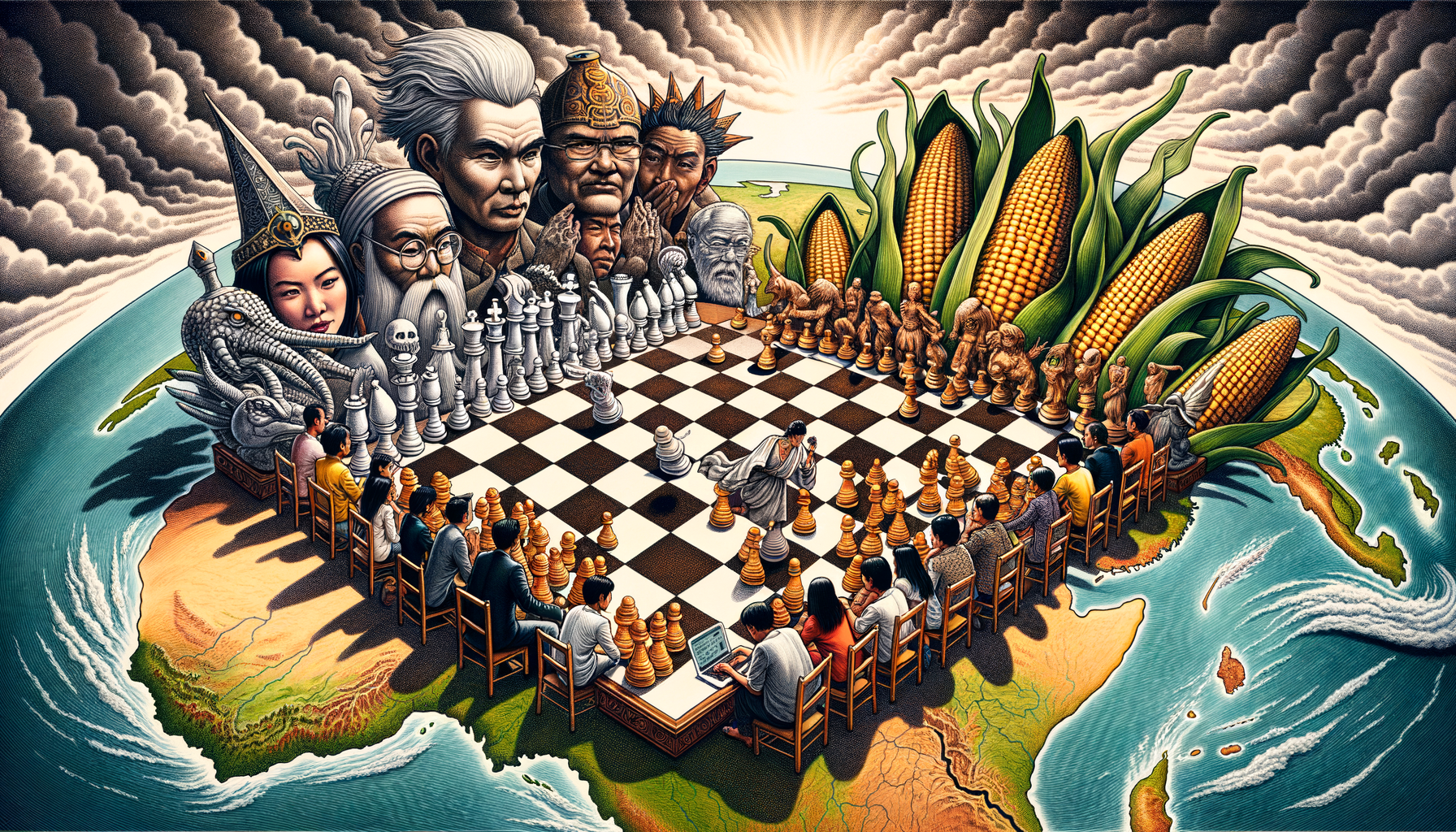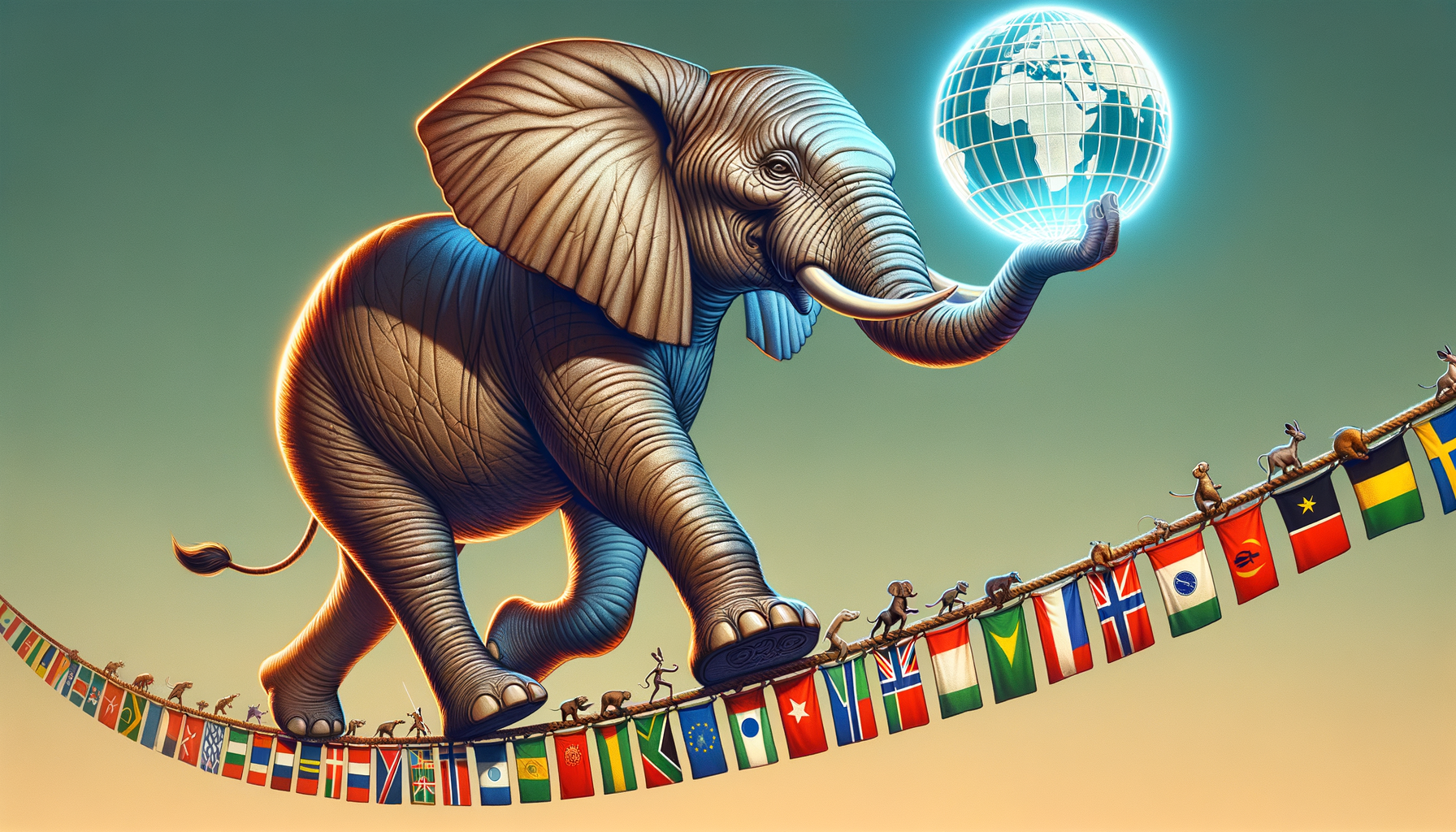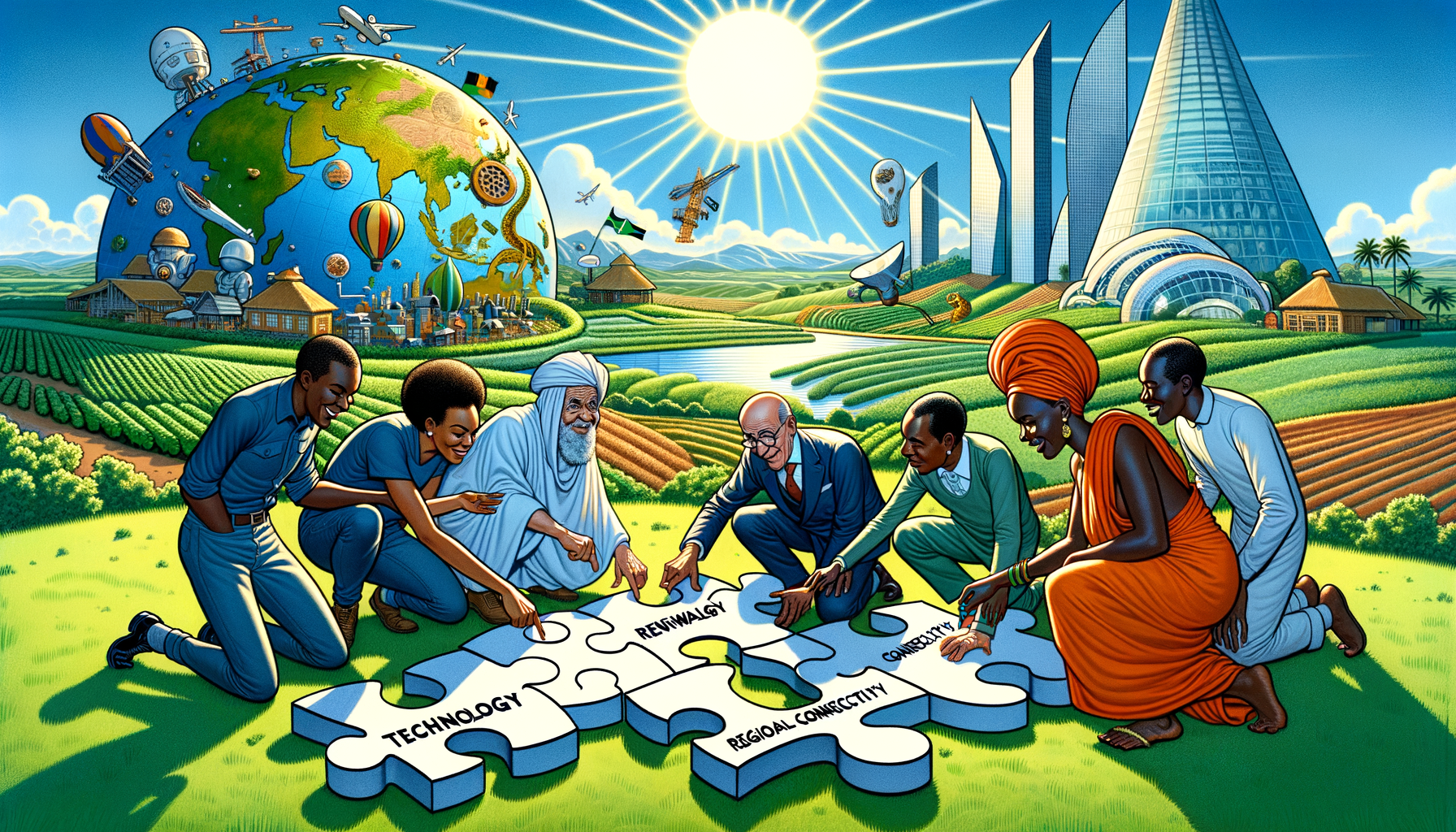Water, Food, Stability: Scarcity's Global Geopolitical Ripple
Considering the intertwined nature of water scarcity in critical regions such as China, India, and the Mekong Delta, alongside the mounting pressures on global food security, how might the evolving landscape of international water-sharing agreements and national strategies for securing food supplies shape the future geopolitical arena? This inquiry seeks to explore the potential for conflicts arising from resource scarcity, the measures countries are adopting to mitigate the risks to food and water availability, and the broader, long-term geopolitical consequences of these insecurities. Additionally, it aims to understand how nations are strategically preparing to address these challenges, balancing between cooperation and competition, to ensure stability and prevent exacerbation of scarcity-related tensions.
African Futures: Demographics, Resources, and Global Economy Renegotiation
How will African states leverage their demographic and resource advantages to renegotiate their roles in the global economy?
African Prospects: Resource Mastery and Redefined Global Roles
In light of the ongoing shifts in the global economic landscape, how could African countries strategically utilize their demographic and resource advantages not only to diminish their reliance on foreign capital but also to bolster intra-African trade relations, thereby enabling them to renegotiate their positions and roles within the global economy more effectively? This question seeks to explore the multifaceted approaches African states might adopt to leverage their inherent strengths, focusing on enhancing economic self-sufficiency and fostering stronger regional partnerships, which in turn could redefine their economic interactions on a global scale.
Net Zero Impact and Plastic Bans on Restoration
How do current climate policy initiatives address the effects of climate change on developing economies, particularly concerning food security and migration?
Evolving Alliances in the Indo-Pacific Geopolitical Chessboard
Considering the dynamic geopolitical landscape of Southeast Asia, how are the evolving U.S.-China relations and developments in the South China Sea and the Indo-Pacific influencing Southeast Asian countries' alignment, and what opportunities are emerging for these nations to renegotiate their roles within regional and global economic systems, thereby redefining their positions and alliances both bilaterally and multilaterally?
Evolving Trade Routes and AI: Indian Ocean's Future
In this context, with the evolving dynamics of global trade routes and the prominent roles of the Arctic and the EuroAsia land routes, how might these developments, alongside the emergence of Decentralized Autonomous Organizations (DAOs) and the rapid advancement of AI technologies, influence the short and long-term geopolitical and environmental impacts, reshape global alliances, economic policies, and traditional models of governance and finance in the Indian Ocean region? Additionally, how will these factors present key ethical, regulatory, and technological challenges and opportunities for sustainable and equitable development across the Indian Ocean rim, particularly in East Africa, South Asia, and Austral-Asia, and could the emergence of AI and the concept of DAO potentially unify the fragmented Indian Ocean region and foster the development of its trade route serving the world?
German Downturn: EV Sector Impact and Global Strategy
How does the economic downturn in Germany and challenges in the electric vehicle (EV) industry affect global supply chains and strategies of international competitors, and in what ways might this situation prompt the international community to adjust trade agreements and collective environmental targets, particularly in response to the accelerating development of EV and green technologies?
COP28 Fallout: OPEC+ Future, Alliances, and New Ventures
One of the outcome of COP28 is to transition away from fossil fuels. What is the future outlook for OPEC+ nations, and the condescending geopolitical implications in terms of political alliances? What might be the entrepreneurial opportunities arising from this directive for OPEC+ nations?
From War Weariness to Wellbeing Market Outlook
What are the structural factors contributing to global war fatigue and which industries could rise in response to a widespread demand for peace and happiness?
Maritime Claims: Reshaping Strategy, Power, and Resource Geopolitics
In the framework of international treaties such as the UNCLOS, how are extended maritime claims expected to reshape global maritime strategy and influence international power dynamics? Furthermore, what are the potential implications of these newly established maritime boundaries on global shipping routes, and how might they affect the geopolitics of resource exploitation and shipping logistics?
Sovereignty Evolution: Balancing Transboundary Challenges and Global Governance
What form of global governance (digital or otherwise) could emerge from the need to address transboundary challenges, and how might it balance national interests with global priorities?
Leveraging Science in Environmental Governance: A Net Assessment
In the context of international environmental governance, how is scientific research being increasingly used as a political tool, similar to the roles of IPCC and UNFCCC in climate policy formulation and international lawmaking?
Paris 2024: Security, Liberties and Mega-Event Futures
What precedents could the Paris 2024 Olympics set for future mega-events, considering the delicate balance between security, civil liberties, and international participation?
Post-COP 28 Energy Realignment: Geopolitics and Security Implications
How might the politics behind the transition to renewable energy and the advocacy of transitional fuels reshape the global geopolitical and energy landscape?
Taiwan’s Energy Strategy Amid Chinese Blockade Threats
How could Taiwan's energy vulnerabilities and risks of a Chinese blockade affect global trade dynamics, particularly concerning key technology and semiconductor markets?
Blockchain Enhanced Carbon Markets: Transparency and Strategy
In what ways could blockchain-driven carbon credit markets influence corporate strategies for sustainability and environmental responsibility?
Maritime Law Shifts: Securing Global Supply Chains
How will a change in the modality of international lawmaking frameworks impact international supply chains and especially marine and ocean resources?
Maritime Security: Legal Adaptations to New Threats
In what ways are international legal and diplomatic frameworks around passage rights (e.g. UNCLOS and the BBNJ) adapting to the new maritime security challenges?
Climate Exodus: Reshaping Resilience in US-Europe Migration
What can be done to bolster the resilience of regions most likely to experience large-scale migration, and how might this reshape international assistance and cooperation frameworks?
Climate Resilience: Shaping Eastern Bloc's New Alliances
How will shifting investment strategies towards climate resilience redefine economic and political alliances within Eastern Europe and Central Asia?





















